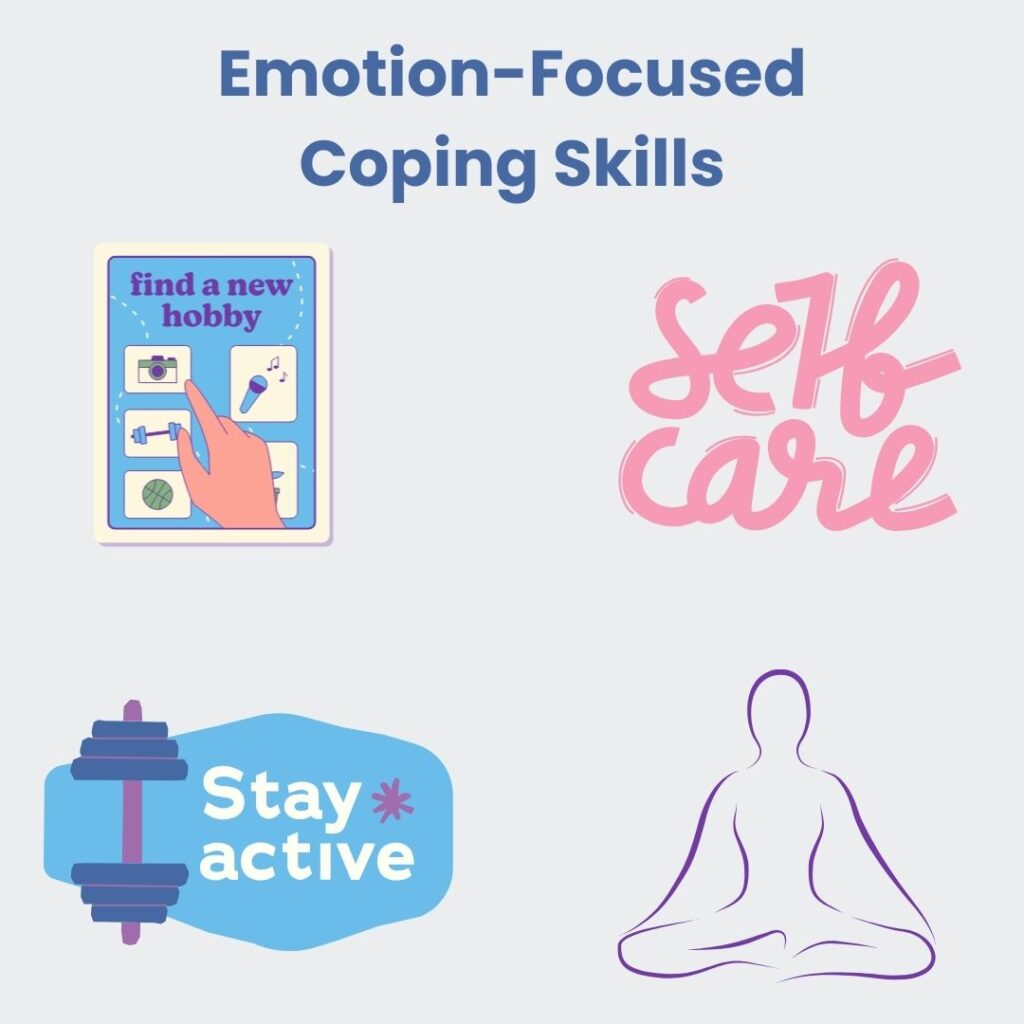We’ve all heard the recommendation that we “cope” with the struggles that we have in life. But what does that even mean? There are several ways to cope with a problem or strong emotions, and they can either be healthy or unhealthy. For example, after a long day at work, some people will go to the gym, spend time with friends, or eat junk food on the couch for the rest of the night. In this blog, I want to highlight the healthier ways to cope with the stressors and emotions of life. Before I get into that, however, I would like to differentiate between the two main forms of coping skills: problem-based and emotion-based.
Problem-based coping skills are more about changing your situation. For example, you are in a toxic relationship with a friend. Ending the friendship may help to resolve the stress and anxiety associated with that relationship. Emotion-based coping skills are about taking care of your feelings related to situations that you cannot control or are unwilling to change. For example, grieving the loss of a loved one or a pet through the use of healthy coping skills. Now let’s look at some ways to exercise healthy coping skills for both problem- and emotion-based needs.
Emotion-Focused Coping Skills

Emotion-focused coping skills can be used to help soothe you, distract you, or help you to manage distress. I recommend that you take a look at these coping skills and try them:
Take care of yourself: take a bath, drink/eat something comforting, and get outside.
Get into a hobby: Do something that makes you happy, play an instrument, paint, listen to music, or learn something new that excites you.
Exercise: Go for a walk, hit the gym, play a sport.
Get something done: Clean your room, wash dishes, do laundry, and take care of that project you have been putting off.
Be mindful: Meditate, pray, spend time in nature, and practice gratitude.
Practice relaxation: Deep breathing, progressive muscle relaxation, journaling, play with a pet.
Problem-Focused Coping Skills

Problem-focused coping skills can be used to help deal with problems in a more straightforward approach. Same as above, take a look at these and see how they could work for you:
Get help: Ask a friend or loved one for help, talk to a professional.
Make a list: Having a lot of things to do becomes more manageable by writing them down and checking them off as you go.
Problem-solving: Take time to reflect on the problem and brainstorm ways to take care of it.
Set boundaries: Setting healthy boundaries with others can help you to get what you want and boost your self-confidence.
Leave: Walk away from a situation that is causing unnecessary stress.
Time management: Take a look at your schedule and see what you need to do to improve how you spend your time.
It may be tempting to resort to unhealthy coping strategies, such as substance abuse, overeating, avoidance, or overspending, but try some of these out and see which ones work best for you in coping with emotions or situations that are challenging.
